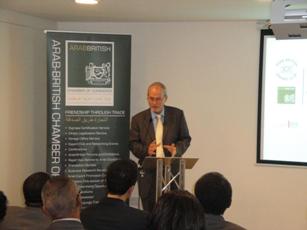Sudan rebukes UK envoy’s comments on UN medivac delay, security spending
August 11, 2011 (KHARTOUM) – Sudan has voiced disapproval in reaction to a write-up in which the UK’s envoy to Khartoum questioned the country’s last week delay of UN peacekeepers’ medical evacuation, and its large spending on security.

“Did, for example, a delay in evacuating wounded Ethiopian peace-keepers contribute to their deaths and if so, what was the role of the Government of Sudan?”, Kay wrote.
Other hard-to-interpret actions include, according to the British diplomat, Sudan’s “ferocious” response to the UN Security Council’s recent resolution which renewed the mandate of the UN-AU Joint Peacekeeping Mission in Darfur (UNAMID), the “increasing obstacles” Khartoum puts in the way of UN Missions, the refusal to allow aid in the war-battered state of South Kordofan and an independent investigations into allegations of serious human rights abuses there.
Sudan came under fire last week after four Ethiopian peacekeepers serving with the newly established the UN Interim Security Force for Abyei (UNISFA) succumbed to wounds they sustained in a landmine blast while awaiting a UN medical evacuation helicopter whose takeoff was allegedly delayed for three hours by Sudanese authority in the neighboring region of Kordofan.
Khartoum on the other hand disputed the allegations, saying the helicopter was delayed for less than three hours and that the holdup was “normal” given the UN’s “bad history” in air transportation.
The British ambassador outlined the efforts exerted by his country to engage with Sudan over the last few weeks, highlighting recent visits by Sudanese officials to London as well as the visit of UK’s Minister for Africa Henry Bellingham’s visit to Sudan two weeks ago.
According to Kay, the strategic intent of UK’s enhanced engagement with Sudan is to see it becoming a country that “puts the interests of its people first.”
He, however, suggested that achieving this goal depends primarily on Sudan’s internal policies and their impact on derailing the country’s quest to relieve its hefty external debt and attracting foreign investors.
“It is a choice, for example, whether the national budget for the intelligence service continues to be higher than the budget for education,” he wrote.
“But it is also a choice for others who care about Sudan. Relieving the $38bn external debt is largely in others’ hands…decisions by foreign investors and businesses also matter,” he added.
Kay’s remarks drew the ire of Khartoum’s government whose foreign ministry’s spokesman Al-Ubayd Muroah on Thursday expressed regret over the UK diplomat’s questions over the death of Ethiopian peacekeepers.
“Nickolas Kay is singing the same mantra being sung by his ilk in U.S lobby groups,” Muroah said.
In response to Kay’s mentioning of the country’s over-spending on security, the Sudanese spokesman said “we remind him that the government is aware of its duties and knows how much it should spend and on what.”
“If the British government wishes to help let it help or else withhold its assistance and tongue,” he said.
Sudan’s defense expenditure is estimated to have risen from US$2.469bn in 2009 to 36.18% in 2010, according to a report produced by Research And Market in 2010.
Meanwhile, in a statement likely to spark another reaction from Khartoum, UK’s Minister for Africa Henry Bellingham on Wendesday expressed his country’s disappointment with Chad’s decision to host Sudan’s president Omer Al-Bashir in violation of its obligation as a member of the International Criminal Court which seeks Al-Bashir’s arrest.
“I am disappointed that the Government of Chad decided to host President Bashir of Sudan on 8 August. This was in defiance of the arrest warrants issued by the International Criminal Court (ICC) for war crimes, crimes against humanity and genocide,” the UK minister said in a statement.
“Chad is an ICC State Party. ICC States Parties are obliged to cooperate fully with the ICC, and I reiterate the importance that the British government places on these obligations,” he added.
Sudan’s president is wanted by the ICC against the background of the conflict in the country’s western region of Darfur, where as many as 300,000 people died and 2.7 million lost their homes as a result of the conflict which erupted in 2003.
(ST)
